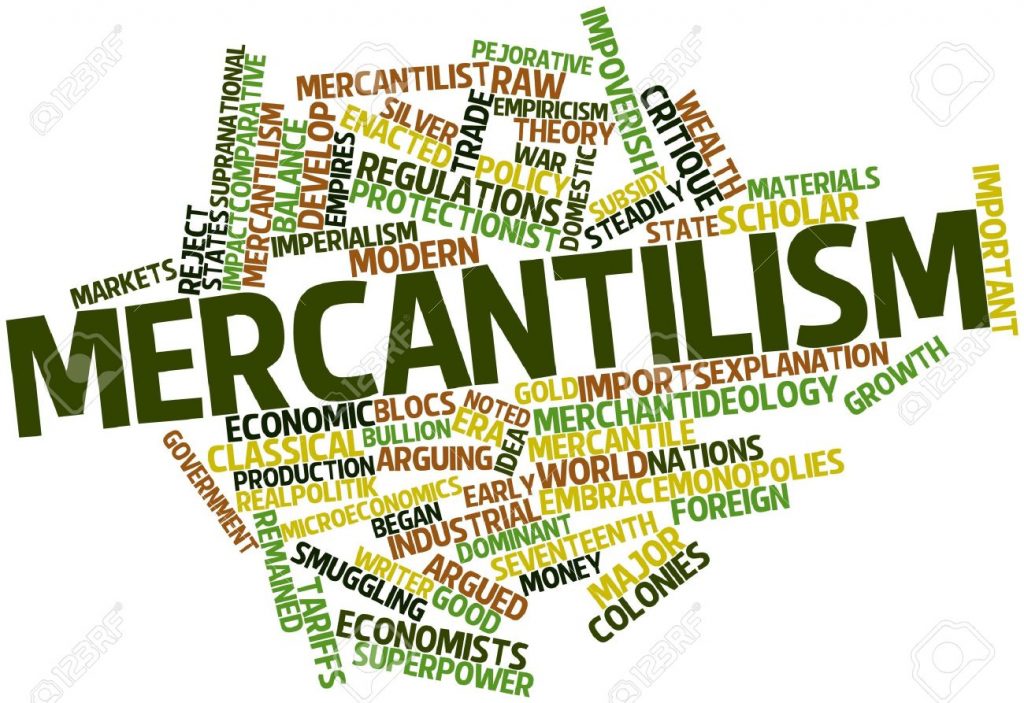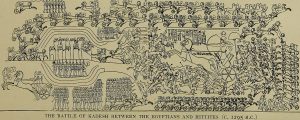Mercantilism is one of the most influential economic doctrines in the history of economics; however, the school that dominated European thought for two centuries is now considered a historical artifact. According to scholar Lars Magnusson, no self-respecting economist would associate himself or herself with mercantilism in today’s society.1

Mercantilism was the dominant economic policy most associated with the Early Modern period of the 16th and 17th centuries. During this era, the only true measure of a country’s wealth and success was thought to be the amount of gold and silver reserves that a nation possessed. In order to add precious metals to a nation’s reserves, it would seek to maximize its net exports and minimize its imports in order to secure its prosperity. Countries that had more wealth could in turn raise and maintain stronger armies and navies, and thus be more powerful. Moreover, according to the doctrine of mercantilism, the gold and silver reserves in the world were thought to be limited. Therefore, one’s gain in precious metals would come at some other country’s expense. Trade was a zero-sum game. For example, the gain from trade for England, mercantilism taught, would be a loss for France or Spain. The best way to ensure a nation’s prosperity was by limiting imports and increasing exports, thereby generating a net inflow of gold and silver, thus increasing the country’s overall gold stocks. Every European nation was trying to find a market for its exports to bring wealth while limiting imports, which would otherwise transfer wealth to others.2
Mercantilism was an economic theory that placed the nation, not the individual, at the center of economic activity. Economic nationalism, the effort to boost exports, was seen as a state-sponsored endeavor. States backed domestic production. Governments applied many forms of protectionist policies in order to promote efficient domestic consumption and maximize the export of surplus production. According to the famous British Navigation Act of 1651, all imports to England had to be carried to English ports on English ships. Colonial exports to Europe had to first land at an English port before going any further. These laws sharply restricted colonial trade with anyone else but England. With mercantilism, each country sought to export as much as possible while preventing imports. As a result, the economic importance of colonies to the success of colonizing powers became vital.3
According to the famous British Navigation Act of 1651, all imports to England had to be carried to English ports on English ships. Colonial exports to Europe had to first land at an English port before going any further. These laws sharply restricted colonial trade with anyone else but England. With mercantilism, each country sought to export as much as possible while preventing imports. As a result, the economic importance of colonies to the success of colonizing powers became vital.3

Colonies played a critical role for European countries. Each country sought to become self-sufficient so that they would not need to import goods from the other European powers. Colonies provided the precious metals and raw materials that European countries needed but could not produce at home. They were also markets for finished goods. According to mercantilism, colonies could only trade with their mother nation, and the direction of wealth should flow to the mother nation. In order to protect colonial trade, each European nation developed powerful navies, which protected its nation’s trade routes.4
The collapse of mercantilist ideology can be attributed to Adam Smith’s classic book The Wealth of Nations. Smith argued that the wealth of a nation does not consist in the amount of gold or silver stashed in its treasuries, but in the productivity of its workforce. He stated that trade can be mutually beneficial for nations, and that the general growth of wealth did not come at the expense of others, but that a “rising tide” of growth would benefit all, which is directly opposed to the ideology of mercantilism.5
- Lars Magnusson, Mercantilism: the shaping of an economic language (London: Routledge, 1994), 8. ↵
- John Maynard Keynes, The general theory of employment, interest and money (New York: Harcourt, Brace and Co., 1936), 3. ↵
- Alan Brinkley, American History: Connecting with the Past Volume 2, 15 edition (New York: McGraw-Hill Education, 2014), 26-27. ↵
- The Concise Encyclopedia of Economics, 2008, s.v. “Mercantilism,” by Laura LaHaye. ↵
- The Concise Encyclopedia of Economics, 2008, s.v. “Mercantilism,” by Laura LaHaye. ↵



85 comments
Kristen Leary
This is a well written article with a good flow. Economics is not always simple to explain, but I think you did a good job of it here. I especially like your use of photos to serve the purpose of your article and make it a little bit more interesting to the reader. Well done on the article and thank you for the new information!
Brandon Vasquez
This article was written really well and allows for the reader to understand what mercantilism is and what it meant to countries in the 17th through 19th centuries. This article also shows how the ideology of mercantilism was replaced and a nation’s wealth was not based on how much gold and silver it had but ultimately on how productive the workforce was.
Emily Rodriguez
The author did a great job making a topic that could be very complex for a person to understand, into a topic that was easy to follow. I also think the graphic of Mercantilist Argument for Colonial Expansion was a good addition to the article to help explain the topic is a visual way. Great conclusion to the article as well! Connecting the book to the end of Mercantilism felt like a proper way to end the article.
Rosa Deyo
This article made mercantilism very easy to understand. The depth of mercantilism is very interesting, especially with how colonies were only allowed to trade with their mother country. It’s a little strange how mercantilism was replaced by other economic systems like capitalism when it was so successful for such a long period of time. Thank you for writing this article.
Rodney Jones
The article was excellent and gave good details about mercantilism for a better understanding. I feel like the author correctly and clearly defined what mercantilism was, where it took place, and how it worked. Through intense and effective writing, I understood precisely what mercantilism was, why it wasn’t just a good thing, and how it negatively affected some human life and other countries. The article was very well written and gave good details about mercantilism for a better understanding.
Erica Mata
I liked that the author connected the point of the article to the book, The Wealth of Nations by Adam Smith. As well as expanding on how mercantilism was. The author did an excellent job on the article overall. Although the article was not as long the author was still able to give us information and they were straight to the point.
Dejah Garcia
Overall I believe that you did an excellent job with your structure in explaining to your audience the definition of Mercantilism. It wasn’t too wordy, and I didn’t lose my focus. Another thing that stood out to me was you’re using great images to back up your message behind your writing.
Kayla Braxton-Young
This article was very well written, I enjoyed reading this article. I haven’t heard of the topic before so it was nice to actually learn about something new. I like how you actually explained what mercantilism is and how it came about. This is used in so many history classes nowadays and the article providied why and the impoarntace of mercantilism. This article provided many visuals, such as pictures, to help us get a better understanding of mercantilism. I really liked this article and it was a different topic.
Courtney Mcclellan
I liked how the article describes mercantilism clearly. The examples used help the reader understand what will happen if the mercantilist idea is true. I liked how you included the reason for the decline of mercantilism and the bit about the ineffectiveness of mercantilism today.
Jackie Velasquez
This article was very informative. It mentioned the definition of mercantilism and talked about how they were only allowed to trade with their mother nation. As much as I briefly knew about mercantilism, this article taught me more than I expected to know. Overall it was very interesting to read and I now know more about this.